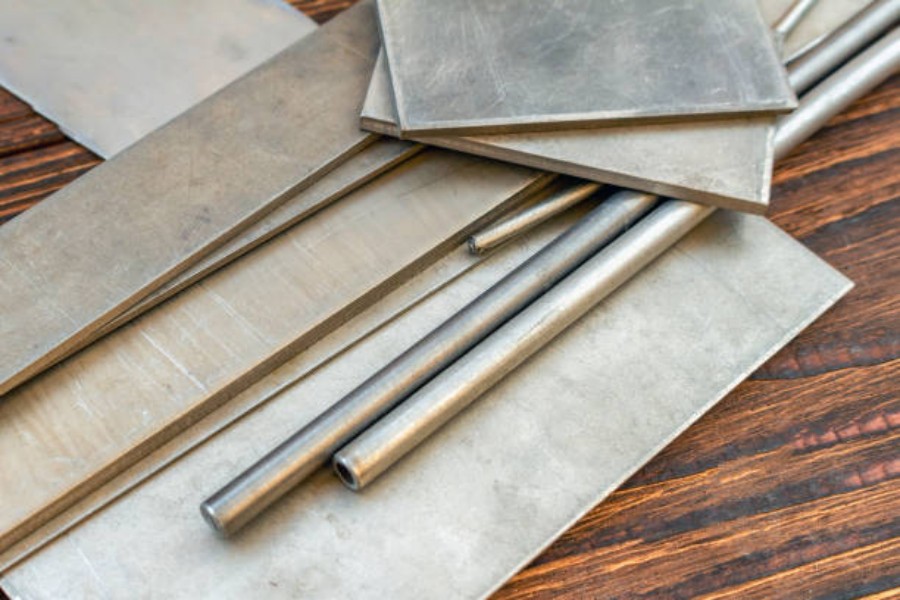Table of Contents

The Benefits of Titanium Tube: High-Quality, Durable, and Versatile
Titanium is one of the essential metals in various industries, from automotive, healthcare, marine to aerospace. It is known for its high strength, durability, and lightness. Titanium tube, in particular, is a versatile material used in many applications and products. This article will discuss the benefits, applications, and technical specifications of titanium tube.
What is a Titanium Tube?
A titanium tube is a tubular form made of pure titanium or its alloys. It has a high strength-to-density ratio and excellent corrosion resistance, making it ideal for demanding environments. The tube's characteristics, including its chemical composition, thickness, and diameter, vary depending on the intended use. Titanium tubes are often produced through welding, extrusion, or seamless rolling to achieve consistent dimensions and quality.
Benefits of Using Titanium Tube
Strong and Durable
Titanium has a high strength-to-weight ratio, making it one of the strongest metals available. A titanium tube can withstand extreme conditions, including high temperatures, pressure, and corrosion, providing enhanced durability and reliability. In addition, titanium has excellent resistance to water and chemicals, making it useful in industries where corrosive substances are present.
Lightweight
Despite its strength, titanium is 40% lighter than steel, making it ideal for weight-sensitive applications. A titanium tube can save weight and reduce fuel consumption in transportation, enhance the maneuverability of medical instruments, and improve the agility of aerospace equipment.
Biocompatible
Titanium is biocompatible, meaning it does not cause adverse reactions or rejection when in contact with the human body. It is often used in medical implants, prosthetics, and dental applications due to its compatibility with human tissue. Furthermore, titanium's inert properties prevent bacteria and other harmful substances from adhering to its surface, making it easy to clean and sterilize.
Excellent Conductor
Titanium is an excellent conductor of electricity and heat, making it ideal for use in electrical, thermal, and energy applications. Its high thermal conductivity contributes to increased heat transfer efficiency, making it suitable for heat exchangers and complex piping systems.
High-Quality Appearance
Titanium has a sleek and elegant appearance, making it ideal for aesthetic applications, such as jewelry, watchmaking, and architecture. Its ability to achieve a polished finish, vibrant colors, and intricate designs make it a creative and distinctive material.
Technical Specifications of Titanium Tube
Alloys
Titanium tubes can be made of pure titanium or its alloys, which have different properties and compositions. The most common titanium alloys used in tube production include Ti6Al4V, Ti3Al2.5V, and Ti-6Al-2Sn-4Zr-2Mo. The choice of alloy depends on the intended use and the desired characteristics.
Dimensions
Titanium tubes come in a range of dimensions, including diameter, thickness, and length. The diameter can range from 0.5mm to 500mm, and the thickness can be as thin as .005mm. The length can be customized to a specific size, depending on the application.
Standards
Titanium tubes are subject to various national and international standards, including ASTM, ASME, and ISO. Compliance with these standards ensures that the tubes meet the required specifications and are of consistent quality.
Applications of Titanium Tube
Medical Industry
Titanium tube is widely used in the medical industry for orthopedic implants, dental applications, and surgical instruments. These applications require biocompatibility, durability, and resistance to corrosion. Titanium's excellent strength-to-weight ratio, biocompatibility, and corrosion resistance make it an excellent choice for medical applications.
Aerospace Industry
The aerospace industry requires materials that are strong yet lightweight to enhance fuel efficiency, reduce emissions, and improve maneuverability. Titanium tube is used in various aerospace applications, including aircraft frames, landing gear, and exhaust systems.
Automotive Industry
The automotive industry values titanium tube's strength, toughness, and corrosion resistance, which makes it ideal for high-performance engines, suspension systems, and exhaust pipes. Additionally, the lightweight and aerodynamic properties of titanium tubes contribute to increased fuel efficiency.
Marine Industry
The marine industry requires materials that can withstand extreme corrosion and harsh environments. Titanium tube is used in ships, submarines, oil rigs, and offshore structures due to its excellent resistance to seawater, rust, and chemicals.
Other Industries
Titanium tube has uses in various other industries, including architecture, sports equipment, watchmaking, and water treatment. Fashion designers also use titanium tube to create unique statement pieces.
Conclusion
Titanium tube is versatile, durable, and high-quality. Its properties make it ideal for use in various industries, including aerospace, medical, automotive, marine, and architecture. The benefits of using titanium tube are numerous, including its strength, durability, lightweight, biocompatibility, and resistance to corrosion. By leveraging the technical specifications and applications of titanium tube, industries can create innovative products that enhance efficiency, safety, and sustainability.
